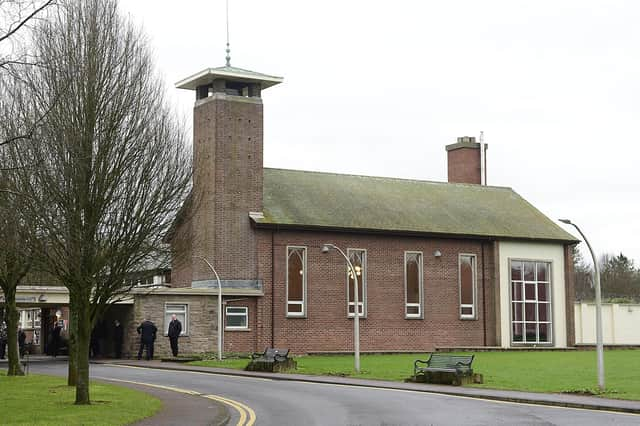Ban on privately-run crematoriums in Northern Ireland lawful: Court of Appeal


Senior judges rejected claims by a Co Tyrone man that rules which allow only local councils to operate cremation facilities are irrational.
Lord Justice McCloskey said: “The impugned provision was introduced by legislative act and can be amended or repealed only by some further legislative act.”
Advertisement
Hide AdAdvertisement
Hide AdNorthern Ireland currently only has two crematoria, located at Roselawn on the outskirts of Belfast and on the Doagh Road in Newtownabbey, Co Antrim.
The facilities are run by Belfast City Council and Antrim and Newtownabbey Borough Council respectively under the terms of the Local Government (Miscellaneous Provisions) (Northern Ireland) Order 1985
Legal action was mounted by Oliver Hughes, who had researched and purchased equipment for setting up a privately-operated crematorium close to his native Carrickmore.
Mr Hughes believed there was a need to provide such a service to families in western areas and that he could make it into a profitable business.
Advertisement
Hide AdAdvertisement
Hide AdBut Article 17 of the Order prohibits and criminalises anyone other than a local council from providing and maintaining a crematorium.
In a case taken against the Department for Communities, Mr Hughes argued that the legislation is lacking in comprehensive justification and irrational.
His lawyers insisted that private companies based in the rest of the United Kingdom and the Republic of Ireland successfully operate crematoria.
It was also contended that many of those firms provide cremations for those who have died in Northern Ireland.
Advertisement
Hide AdAdvertisement
Hide AdAccording to Mr Hughes, councils in this jurisdiction have no special expertise in running such facilities, with the laws particularly harmful to the population beyond the greater Belfast area.
Earlier this year the High Court dismissed his application for judicial review.
Appealing that ruling, counsel for Mr Hughes contended that the prohibition limits the burial choices available to the population in Northern Ireland.
Judges were also told there had been limited parliamentary scrutiny of the 1985 Order, and that the collapse of Stormont means there are no functioning institutions of accountability within the jurisdiction.
Advertisement
Hide AdAdvertisement
Hide AdHowever, Lord Justice McCloskey identified no arguable case that any review by the Executive of the relevant provision would have concluded it was infected by irrationality.
“The analysis that one of the possible outcomes of such a review could be the maintenance of the status quo is unimpeachable,” he said.
Rejecting Mr Hughes’ appeal, the judge concluded: “Government ministers and departments, unless specifically empowered by legislation to do so, are not legally competent to alter any provision of extant litigation.
“Our firm conclusion is that the appellant’s case falls demonstrably short of qualifying for the judicial condemnation of… irrationality.” ends